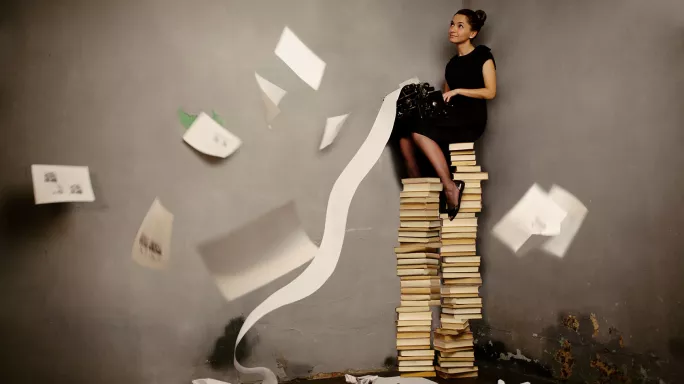The moment had arrived.
A child, who had been writing for weeks on end, finally held a gold pen aloft in a victorious grasp.
The Lost Pens had been recovered from the evil baron, and the land of Calligra was once again free from his oppressive reign.
Quick read: EYFS: how to ensure you make the most of story time
Quick listen: Why oral vocabulary is key at primary
Want to know more? How to build a primary curriculum
The Lost Pens is now a permanent fixture in my classroom. The children arrive in September to find scrolls on their desks, setting the challenge for the year ahead.
They will train to become masters of the pen, battling monsters with their writing, acquiring rewards along the way.
In reality, they are being led through the Year 6 writing criteria while being encouraged to find their own voices as authors.
There are weekly sessions based entirely around The Lost Pens, and the children see it as much a part of their English curriculum as their Spag and reading.
Literacy: the story begins
I came up with the idea back in 2016, when the new criteria for the writing framework was released. It was clear that writing would only meet the threshold if students had jumped through the hoops of punctuation.
Rather than box-ticking, I decided to make it into a positive element.
I would turn my lifelong passion for tabletop gaming - building fantastical stories around larger-than-life characters - into a classroom resource.
I assigned points to the necessary features (including the much-maligned fronted adverbial). The more features a student uses correctly, the more points they acquire.
Overall aspects like correct use of tense and full stops are given a score at the end of each piece. Once a piece is marked, children add their points to a table in the back of their books.
There are 10 levels of penmanship to progress through, with rewards such as healing potions and teleportation scrolls to add extra incentives to unlock the Lost Pens. These fabled (gold gel) pens are the reward.
The impact has been huge. Reluctant writers have been transformed in their quest for the Lost Pens.
The children keep surprising me with their punctuation skill and the originality of their work; I never specified what I wanted to see beyond a range of text types (of their choosing), so I get to read varied, interesting pieces.
A fantastic journey
Three years on and it’s become a significant part of my teaching. Variations have evolved, from “cooperative” modes to battle lessons, but the progress and interest levels have stayed high.
The Lost Pens even has its own Twitter account and fellow teachers around the country tell me that they are taking the gaming approach into their classrooms with impressive results.
World-building and creating entirely new ways of teaching and assessing hasn’t been easy. Even now I’m not sure I’ve got the balance right, particularly for children who find writing a real challenge.
There can be a heavy emphasis on narrative when children select for themselves, and one of my next goals is trying to make the inclusion of non-fiction text types seem organic rather than forced.
But, as a concept, it’s both a success and, really, nothing new. It’s what all teachers do: help children to develop useful skills while leaving them feeling that they’re in charge of their destinies.
Adam Parkhouse is an upper key stage 2 teacher and deputy head in a rural school in Norfolk. He tweets @Parky_teaches



